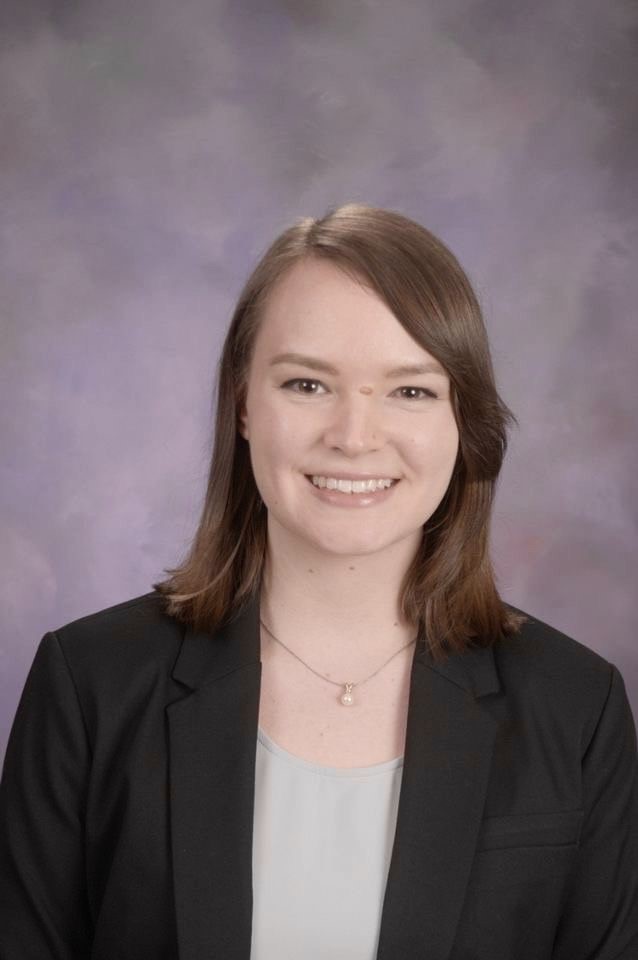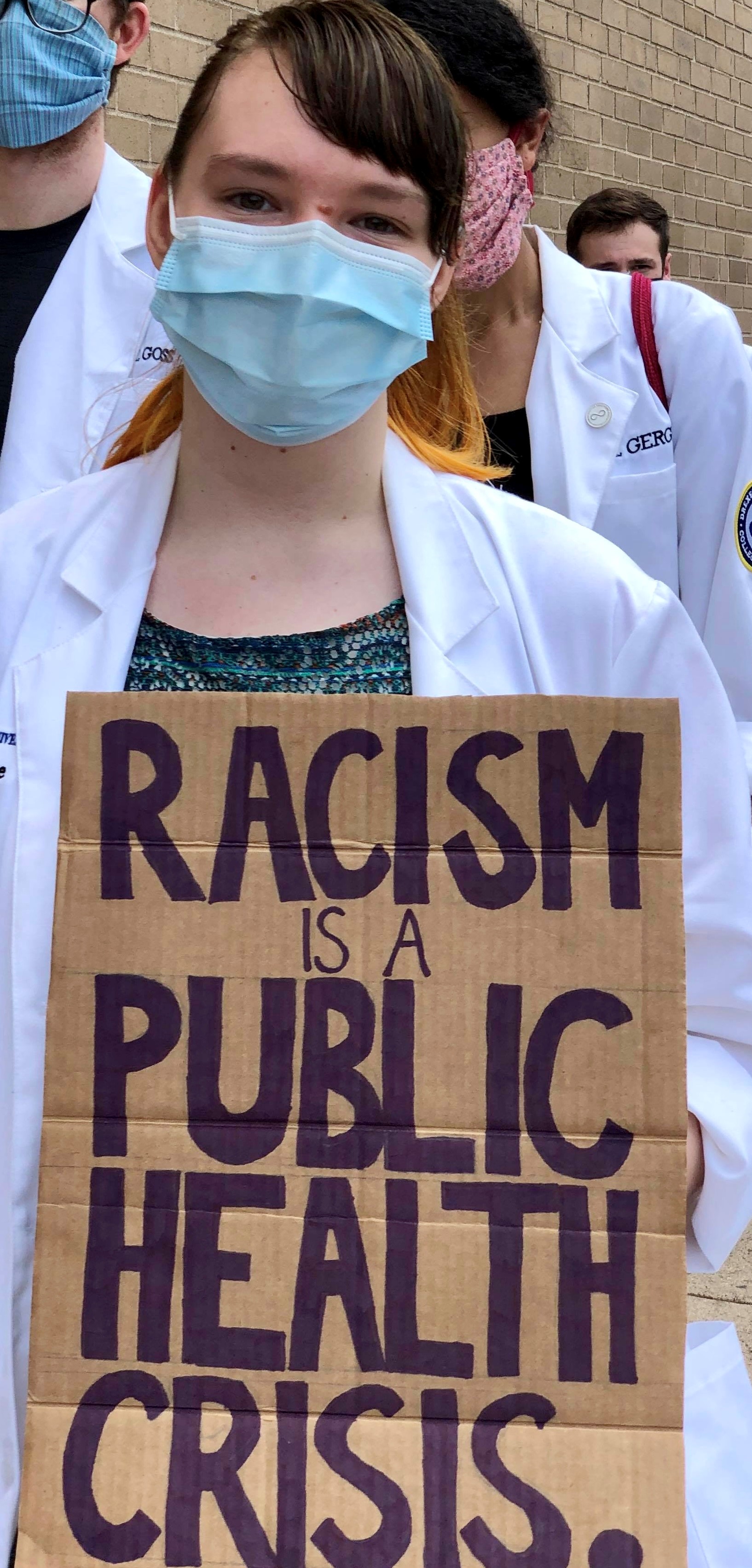Shannon Blemings, MD, a second-year pediatrics resident at Connecticut Children's, embodies a dedication to child health and community advocacy that has been shaped by her experiences growing up in New Haven, Connecticut. With a strong academic foundation in Physiology and Neurobiology from the University of Connecticut and a medical degree from Drexel University College of Medicine, Shannon's return to her home state for residency marks a continuation of her commitment to serving her community.
Shannon is currently enrolled in the Resident Education in Advocacy and Community Health (REACH) program in Connecticut Children’s Office for Community Child Health (OCCH). This program is designed to foster the growth of future pediatricians as community child health advocates. Through REACH, Shannon has the opportunity to develop expertise in advocacy, community health, and public policy, working closely with leaders in population health, community research, policy reform, and social innovation. The program is integral in shaping pediatric residents into future leaders, equipping them with the knowledge and skills needed to promote healthy development in children.
What inspired you to pursue a career in pediatrics?
I knew I wanted to become a doctor from a young age, and I think my relationship with my own pediatrician played a large part in that decision. She was my doctor from birth until I turned 22! She didn't just watch me grow up—she played an active role in my health and development. That is why I chose pediatrics; it offers the unique opportunity to follow and support our patients through multiple developmental stages and life transitions. Pediatricians have the chance to be a trusted adult in a child's life, and we strive to build connections with our patients so that they can feel comfortable coming to us with their concerns. Children are so vulnerable yet have the capacity to be so resilient if given the necessary supports. It is my goal as a pediatrician to provide and advocate for those supports for my patients.
How did you become involved in community advocacy work?
I have to give credit to my mom for introducing me to the concept of community outreach and advocacy! Growing up, I saw her engaging in a wide variety of community advocacy efforts, from PTA meetings to homeless outreach. So, it was a natural progression for me to get involved in similar efforts. My first meaningful experience with community advocacy was in middle school; I was one of the founding members of my school's community garden. Since then, I have had the privilege of attending college, medical school, and now residency, where opportunities for advocacy work have been abundant. My advocacy has taken many forms, including writing legislators, participating in marches, creating a social media campaign, and volunteering at schools. However, advocacy work doesn't have to be large-scale or through a major institution to be meaningful. Especially now, with so many causes deserving of our attention, it can feel overwhelming trying to dedicate time and energy to specific advocacy efforts. I sometimes feel the need to remind myself that even having one meaningful conversation can be advocacy.
How do you engage with families and communities to address their needs in pediatric care?
Engaging with families is my favorite part of my job! It can be difficult to talk openly about one's needs, especially for people from marginalized communities who are used to being unfairly judged or even demonized for those needs. It's important to approach the topic from a place of genuine compassion and with a nonjudgmental attitude. I try to preface conversations about unmet needs with the disclaimer that I'm asking because it's an important part of their child's health, and in many cases because I can offer resources to help. As for engaging with communities, I think the Pediatrics Residency has helped facilitate those experiences with our Community Longitudinal Elective; we have time in our schedule set aside to work with local organizations including preschools, food banks, urban farms, and after-school sports teams to meet the communities we serve in a context other than the hospital.
How has your experience in community advocacy shaped your goals as a future pediatrician?
I've reached the point in my career where I'm deciding what to do after residency, and I've chosen to go into primary care. That decision has certainly been shaped by my experiences with community advocacy. Primary care pediatricians, as the first point of contact with the medical system for most patients, do a lot of screening and surveillance regarding unmet needs and social influences on health. I might be the first person who has asked a family if they struggle with food insecurity, for example. Even if a family isn't currently dealing with food insecurity, they know that is something I care about and can help with, so if that were to occur in the future, they know they can ask us for help. That's not to say primary care is the only avenue for advocacy in pediatrics! Every subspecialty offers an opportunity to get involved.
What do you think are the most pressing issues in child health today, and how are you addressing them?
Oh, gosh, there are so many. We ask about a lot of issues on our intake screener, including food insecurity, gun violence, and screen time. I get overwhelmed sometimes thinking about all the things I wish I could make instantly better for my patients. I find it more helpful to focus on protective factors and how I can help facilitate a strong support network for the child. We know that one of the biggest protective factors for children is having a healthy relationship with their caregivers. I do a lot of work during primary care visits to help families navigate that relationship and find ways to build connections. Talking to their newborn to aid in brain development and language acquisition, reading aloud to support literacy, showing interest and enthusiasm for their child's future goals, and supporting expression of self are all things I try to model for caregivers to help support their connection with their child. Something else that everyone can do to help address issues in child health is to learn about current legislation surrounding those issues and vote for people who will enact positive change.
What has been the most rewarding part of your work in pediatric health and child development?
The most rewarding part of my job is when caregivers tell me, "Thank you." It's the feeling of having helped make a difference, even a small one. I don't know what it's like to be a parent, but I can see how confusing it is to raise a child without a rulebook and how worrisome it is to have a sick child. Being able to offer reassurance or comfort in difficult times is such a privilege. As I establish my career and follow patients over years as they grow up, I anticipate the biggest reward will be getting to see my patients develop into young adults. I hope that I can give them the support they need to flourish.
Dr. Shannon Blemings is a shining example of how the Resident Education in Advocacy and Community Health program in the Office for Community Child Health is shaping the future of pediatric care. Her passion for child health, coupled with her deep commitment to community advocacy, positions her as a future leader in the field. As she continues her residency, Shannon remains dedicated to making a positive impact on the lives of her patients and the communities she serves, with the ultimate goal of fostering healthy development and advocating for those who need it most.


